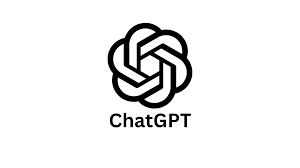Artificial Intelligence has made significant strides in diverse industries, and marketing is no exception. ChatGPT, a highly sophisticated language model developed by OpenAI, has emerged as a game-changer in this field. Its ability to understand and generate human-like text has paved the way for innovative applications that can boost marketing outcomes. In this topic, we will explore five case studies where ChatGPT has been successfully integrated into marketing campaigns.
- Case Study 1: Content Generation for an Online Fashion Retailer
An online fashion retailer was facing challenges in keeping up with the fast-paced demands of content generation. Producing compelling and unique product descriptions for a rapidly changing inventory was proving time-consuming and resource-intensive. They turned to ChatGPT to ease the burden.
The retailer utilized ChatGPT’s text generation abilities to create engaging and accurate product descriptions. The AI was fed input like product specifications and style details, which it used to generate comprehensive and attractive descriptions. Not only did this greatly reduce the content generation burden, but it also led to more consistent and high-quality descriptions across the site.
The result was a significant increase in user engagement and a measurable uptick in conversions. The time saved on manual content generation was redirected to other strategic areas, boosting overall productivity.
- Case Study 2: Social Media Management for a Fitness Brand
A fitness brand with a robust social media presence was seeking ways to engage more effectively with its audience. They were producing large volumes of content across various platforms, a process that was time-consuming and labor-intensive. The brand turned to ChatGPT for assistance.
ChatGPT was employed to automate part of their social media content generation. It was used to create engaging posts, responses to comments, and direct messages to followers. ChatGPT’s natural language generation skills allowed it to produce human-like, relatable content that resonated with the brand’s audience.
The brand saw an increase in audience engagement and growth in their follower base across platforms. The time saved allowed the marketing team to focus on strategy and other high-value tasks.
- Case Study 3: Customer Support for an E-commerce Platform
An e-commerce platform was overwhelmed with customer inquiries about products, orders, and shipping. Their customer service team was struggling to keep up with the volume, leading to slow response times and a drop in customer satisfaction.
The platform integrated ChatGPT to power a customer service chatbot. Unlike traditional rule-based chatbots, ChatGPT was able to understand a wide range of inquiries and generate accurate and relevant responses. This made the interaction feel more natural and personal to the customers.
The result was a dramatic decrease in response time, a substantial increase in the resolution rate of inquiries, and an improvement in overall customer satisfaction.
- Case Study 4: Personalized Email Campaign for a Travel Agency
A travel agency was looking to enhance customer engagement through personalized email campaigns. However, creating tailored content for each subscriber was proving to be a resource-intensive task.
They utilized ChatGPT to generate personalized emails for their subscribers. The AI was given data about the customer’s past travels and preferences and used this to create personalized travel suggestions, offers, and tips.
The personalized email campaign saw an increase in open rates and click-through rates, leading to higher conversions. The campaign also increased customer engagement and boosted customer loyalty.
- Case Study 5: Market Analysis for a Tech Startup
A tech startup wanted to keep up with the latest market trends and customer sentiment but found it challenging to sift through the vast amount of available data. They used ChatGPT to assist in this task.
ChatGPT was used to analyze large volumes of text data, including social media posts, customer reviews,
and industry reports. It generated summaries of the data, highlighting key trends, sentiments, and insights.
This enabled the startup to stay informed about the market and customer sentiments without investing a lot of time in manual data analysis. It helped them make more informed business decisions and react promptly to market changes.
In conclusion, these case studies highlight the versatility and potential of ChatGPT in diverse marketing scenarios. By automating tasks like content generation, social media management, customer service, and data analysis, ChatGPT can streamline marketing operations, enhance customer experience, and ultimately drive growth. However, it’s crucial to use AI responsibly and ensure its implementation aligns with data privacy regulations and ethical guidelines. As AI technology continues to evolve, the opportunities for its application in marketing are likely to expand even further.
Subscribe to our email newsletter to get the latest posts delivered right to your email.

